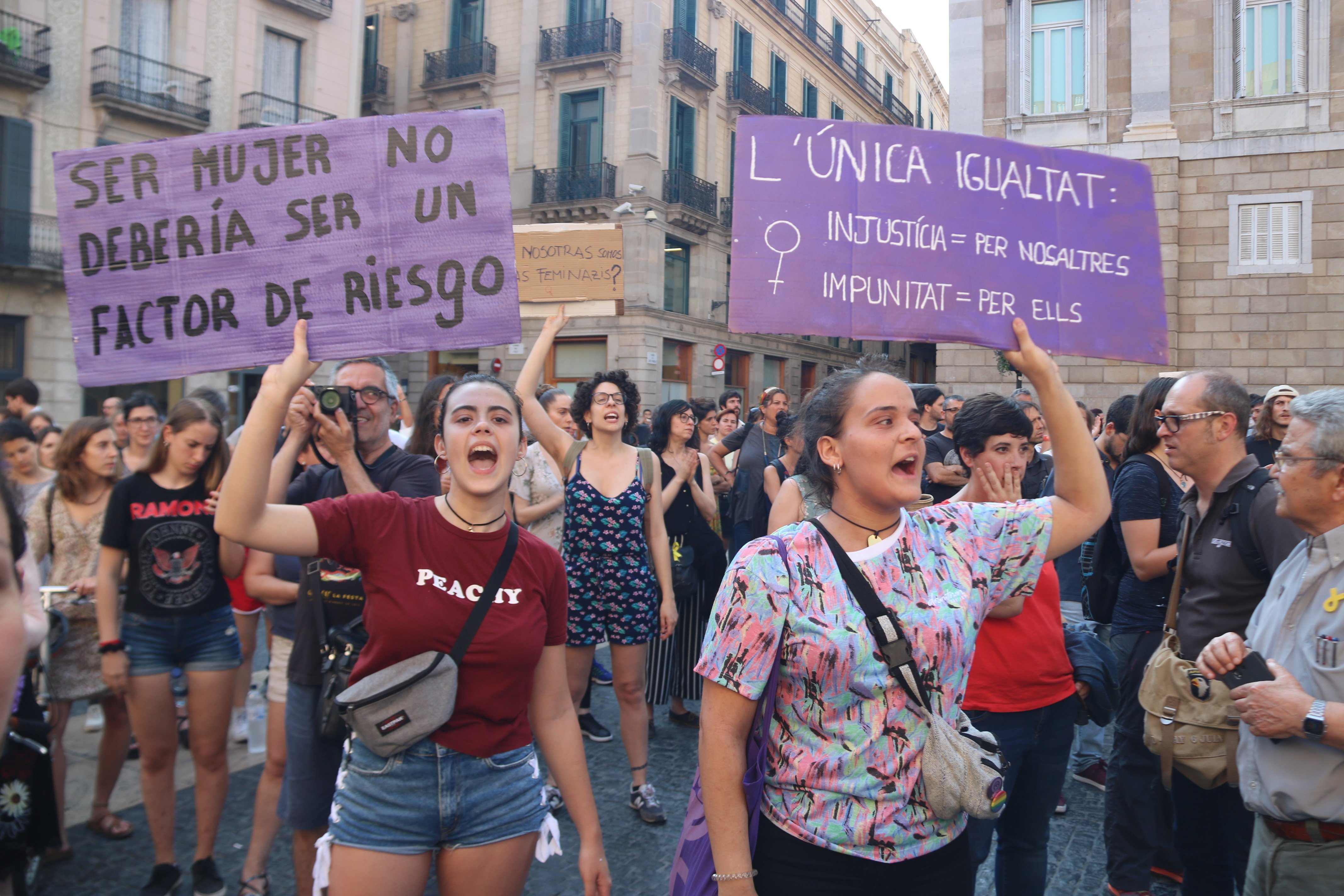The appeals chamber of the Catalan High Court (TSJC) has reduced the sentences of two rapists after an ex officio review required after the entry into force of the so-called "only yes means yes" law. As the press office of the TSJC announced this Monday, one sex offender who had been convicted to 6 years and 6 months in prison by the Girona Audience has had his sentence reduced to 4 years and 6 months in prison. In the second sentence, the TSJC reduces from 28 to 27 years in prison the total sentence imposed by the Barcelona Audience on a rapist, convicted of two sexual assaults (one, an attempted assault), in addition to robbery and theft.
The application of the new Spanish Law on the Comprehensive Protection of Sexual Freedom continues to generate debate. There are courts that assert that if the penalty can be maintained under the new regulations, they will not review it, while others state that it should always be reviewed. The first two reviews carried out by the Catalan court have been downwards, based on the argument that the courts of first instance had imposed the minimum penalty for the case and, since that minimum has now been reduced, the penalty imposed should also fall. The TSJC has ratified and validated the accounts of the proven facts in both cases. In fact, the judges of the criminal sections of the Barcelona Audience are meeting this Thursday in a meeting to unify criteria for the review of rape convictions due to the application of the new law.
The court's arguments
In reviewing the judgment made by the Girona court, the TSJC explains that the court convicted the accused under article 179 of the Penal Code, which sets a penalty of 6 to 12 years in prison and which the court considers justified the imposition of a "penalty slightly higher than the legal minimum". It maintains that the Girona court states that "the amount of violence used is moderate and that the episode analyzed was not prolonged in time, but it must be taken into account that the victim was a minor (17 years old), and that she stated that it was her first sexual experience with penetration". For this reason, the man was sentenced to 6 years and six months in prison and given a 9-year restraining order. The TSJC specifies that as the court imposed a minimum sentence, it will now be reduced to 4 years and 6 months in prison, the minimum now set down for the crime of sexual assault, and the restraining order will be shortened to 5 years, as determined by the law.
In the second sentence, the Barcelona Audience sentenced a man to a total of 28 years in prison, accused of assaulting women, whom he deceived with job advertisements, in 2019. He was convicted of five offences; two in the most serious catagory: 15 years in prison for sexual assault, and 10 years in prison for a second sexual assault. It is this second conviction that the TSJC has revised downwards, taking one year of imprisonment off this sentence. It points out that, for this crime, the Barcelona Audience imposed a sentence in the middle of its range, which runs from 6 to 12 years' imprisonment. With the new law, the range is now from 4 to 12 years in prison, and thus a mid-range sentence would be 8 years, but the court argues that to "maintain the fidelity of the court's decision" it imposes, like the sentencing court, a slightly higher penalty: 9 years in prison. None of the sentences for the other offences committed are altered.
Last week, Spain's Supreme Court established, in a first resolution on an issue that has provoked huge controversy, that all convictions must be reviewed if they involve a reduction of the sentence when the new 'only yes means yes' law is applied. Earlier, the Spain's prosecutor general had published an order, indicating that the review of convictions should not be requested by prosecutors, if those imposed by the courts can remain the same under the new rule.
💻 #WbinCICAC “Retroactivitat de les normes penals i la seva aplicació a la LO 10/2022 de 6 de setembre de garantia integral de la llibertat sexual”
— Consell Advocacia (@conselladvocat) December 19, 2022
👉🏻 La finalitat d’aquesta norma és donar mes eines als juristes en defensa de les víctimes de delictes contra la llibertat sexual pic.twitter.com/tf62UYSu0w
In fact, this Monday the Catalan Legal Council has organized a session on the correct interpretation of the new 10/2022 law, in relation to which it asserts that "the purpose of this law is to give lawyers more tools in defence of victims of crimes against sexual freedom".

